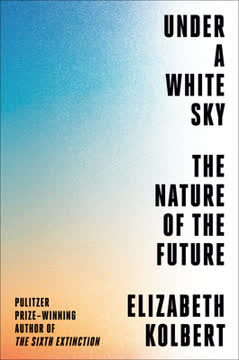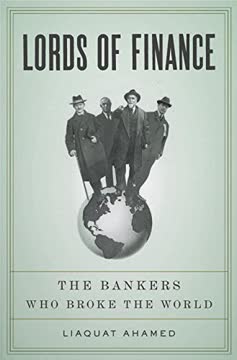Key Takeaways
1. Consumer behavior is driven by evolutionary instincts to display fitness
"Consumerism depends on forgetting a truth and believing a falsehood."
Evolutionary roots of consumption. Human consumer behavior is largely driven by our evolved instincts to display fitness indicators - signals of our health, fertility, intelligence, and personality traits. Just as peacocks evolved elaborate tails to attract mates, humans have developed complex systems of conspicuous consumption to advertise our desirable qualities. This explains our seemingly irrational obsession with luxury brands, status symbols, and the latest gadgets.
The consumerist delusion. The fundamental consumerist delusion is that others care more about our purchased products than our natural traits displayed through normal social interaction. In reality, most people pay little attention to our possessions, while being highly attuned to our personalities, intelligence, and social behaviors. Consumerism exploits our evolved tendencies while failing to satisfy our deeper social and psychological needs.
2. Marketing exploits our desire to signal personal traits through products
"Marketing is not just one of the most important ideas in business. It has become the most dominant force in human culture."
Marketing's cultural dominance. Marketing has become the central force shaping modern culture, going far beyond simply advertising products. It systematically taps into our deepest desires and instincts, creating associations between brands and our aspirational traits. This explains why seemingly rational people are willing to pay huge premiums for branded products that are functionally identical to cheaper alternatives.
The invisible eye. Marketing functions as an "invisible eye" that studies human nature and preferences in unprecedented detail. While academic psychology languishes, market research has become the most important investigator of human behavior. This gives marketers and advertisers immense power to shape cultural norms and individual aspirations.
- Marketing spending dwarfs academic psychology research
- Brands create powerful psychological associations
- Advertising shapes cultural values and personal goals
3. Intelligence and personality traits form the core of human differences
"We are all one species, yet individual differences loom large."
The Central Six traits. Human differences can be largely captured by six key traits:
- General Intelligence (g)
- Openness to Experience
- Conscientiousness
- Agreeableness
- Emotional Stability
- Extraversion
These traits are highly heritable, stable across the lifespan, and predictive of behavior across many domains. Understanding them is crucial for grasping human nature and social dynamics.
Beyond superficial demographics. Marketers and social scientists often focus on superficial demographic categories like age, gender, and ethnicity. However, the Central Six traits are far more fundamental in shaping human behavior and preferences. They explain much of the variation within and between demographic groups.
4. Openness to experience shapes cultural preferences and political views
"Parasites reduce openness."
Openness and cultural preferences. Openness to experience profoundly shapes our cultural tastes, political views, and consumer choices. Those high in openness tend to seek novelty, embrace diversity, and prefer creative, unconventional products and experiences. Those low in openness favor tradition, conformity, and familiar, practical goods.
The parasite theory of values. Fascinatingly, research shows that parasite prevalence in a region predicts lower openness, higher conformity, and more conservative values. This may be because in parasite-rich environments, deviation from cultural norms carried higher risks of infection. This theory helps explain global variations in openness and cultural attitudes.
- High parasite load → Lower openness → Cultural conservatism
- Low parasite load → Higher openness → Cultural liberalism
- Explains differences between tropical and temperate cultures
5. Conscientiousness is a key trait valued across cultures and situations
"Conscientiousness is the Big Five personality trait that includes such characteristics as integrity, reliability, predictability, consistency, and punctuality."
Universal value of conscientiousness. While preferences for other personality traits vary, conscientiousness is universally valued across cultures and situations. It predicts success in work, relationships, and health outcomes. This explains why so many products and services are marketed as indicators of conscientiousness - from luxury watches to immaculately maintained lawns.
Displaying diligence. Consumers often prefer high-maintenance products as a way to display their conscientiousness. This explains the popularity of:
- Delicate clothing requiring careful cleaning
- Finicky pets needing constant care
- Complicated gadgets demanding mastery
- High-end cars requiring meticulous upkeep
These items allow owners to demonstrate their reliability, attention to detail, and self-discipline.
6. Agreeableness manifests in ideologies and consumer choices
"Young adults of both sexes often devote massive amounts of time, money, and energy to signaling their agreeableness through their ideologies."
Ideology as trait display. Political and religious ideologies often function as displays of personality traits, particularly agreeableness. Liberal ideologies tend to signal high agreeableness through emphasis on empathy and social justice. Conservative ideologies signal conscientiousness through emphasis on personal responsibility and traditional values.
Consumer choices reflect agreeableness. Product choices also reflect and signal agreeableness:
- High agreeableness: Prius, fair trade coffee, TOMS shoes
- Low agreeableness: Hummer, luxury brands, aggressive styling
These choices allow consumers to broadcast their level of concern for others and society at large.
7. Alternatives to conspicuous consumption can better display our traits
"Buying new, real, branded, premium products at full price from chain-store retailers is the last refuge of the unimaginative consumer, and it should be your last option."
Beyond retail. There are many alternatives to displaying traits through retail purchases that are both cheaper and more effective:
- Make it yourself - displays creativity and skill
- Buy used - shows resourcefulness and frugality
- Commission from local artisans - demonstrates taste and community connection
- Borrow or rent - indicates social capital and practicality
Narrative value. These alternatives often have higher "narrative value" - they come with interesting stories about their origin, acquisition, or use. This makes them far more effective as conversation starters and trait displays than generic retail goods.
8. Civil society and social norms are powerful forces for changing behavior
"Civil society is where the action is, where reasoned argument and new knowledge can most effectively change people's lives for the better."
Beyond government and markets. While many focus on government policy or market forces to change behavior, civil society norms are often more powerful. These include cultural traditions, social expectations, and informal rewards and punishments that shape behavior.
Harnessing social norms. To effect change, we must understand and work with these informal systems:
- Recognize the power of peer influence and social pressure
- Cultivate new norms through community leaders and social networks
- Use praise and censure to reinforce desired behaviors
- Create narratives and identities around positive changes
By shaping civil society norms, we can promote more sustainable, fulfilling alternatives to runaway consumerism.
</instructions>
Last updated:
FAQ
What's Spent: Sex, Evolution, and Consumer Behavior about?
- Consumerism and Evolution: The book explores how consumer behavior is rooted in evolutionary history, focusing on sexual selection and social status.
- Role of Marketing: It discusses how marketing exploits human instincts, shaping culture to prioritize status and image over practical needs.
- Psychological Insights: Miller uses evolutionary psychology to explain consumer choices, driven by unconscious motives to display traits and attract attention.
Why should I read Spent: Sex, Evolution, and Consumer Behavior?
- Unique Perspective: The book links consumerism to evolutionary psychology, offering insights into personal purchasing habits.
- Thought-Provoking Analysis: It challenges conventional views, making it relevant for those interested in psychology, marketing, or sociology.
- Practical Implications: Readers can learn to navigate consumer culture mindfully, aligning purchases with values and needs.
What are the key takeaways of Spent: Sex, Evolution, and Consumer Behavior?
- Signaling Behavior: Consumer behavior often signals traits to others rather than fulfilling practical needs.
- Marketing's Influence: Marketing shapes cultural norms and desires, becoming a dominant cultural force.
- Evolutionary Framework: The book connects instincts for status and social approval with modern consumption.
How does Spent connect consumer behavior to evolutionary psychology?
- Human Instincts: Consumer behavior is influenced by instincts prioritizing social status and mate attraction.
- Fitness Indicators: Products serve as indicators of traits like health and intelligence, shaping consumption patterns.
- Cultural Evolution: While instincts are ancient, consumerism is culturally evolved, helping navigate modern culture.
What are the Central Six traits discussed in Spent?
- General Intelligence: Predicts success across life domains, influencing consumer choices.
- Openness: Reflects curiosity and novelty-seeking, affecting purchasing decisions.
- Conscientiousness: Involves self-control and reliability, linked to successful behaviors.
- Agreeableness: Encompasses warmth and kindness, impacting social interactions.
- Stability and Extraversion: Stability relates to resilience, while extraversion affects sociability and consumer behavior.
How does Spent critique modern consumerism?
- Superficial Displays: Critiques consumerism for promoting status displays that don't reflect true traits.
- Environmental and Social Costs: Discusses negative externalities like environmental degradation and social alienation.
- Call for Change: Advocates reevaluating social norms to reflect personal values and traits.
What alternatives to conspicuous consumption does Spent suggest?
- DIY and Crafting: Encourages making items to display creativity and conscientiousness.
- Community Engagement: Suggests engaging in community activities to foster social bonds.
- Consumption Taxes: Proposes taxes reflecting true costs to encourage responsible purchasing.
How does Spent address the concept of conspicuous consumption?
- Definition and Role: Defined as purchasing goods to display wealth or status, serving as fitness signaling.
- Psychological Motivations: Stems from a desire to impress, with products designed for showing off.
- Cultural Critique: Critiques focus on superficial traits, urging reflection on deeper values.
How does marketing exploit our evolutionary instincts according to Spent?
- Creating Desires: Marketing taps into instincts for status and approval, shaping desires.
- Status Symbols: Promotes products as symbols of status, manipulating desires.
- Cultural Norms: Reflects and creates norms, influencing what is desirable.
What is the "Sensible Model" proposed in Spent?
- Complex Interactions: Connects instincts, norms, and technology to explain behavior.
- Potential for Change: Understanding factors can reengineer consumption for fulfillment.
- Framework for Analysis: Offers a framework to analyze motivations behind purchases.
How does Spent address the concept of happiness in relation to consumerism?
- Happiness vs. Materialism: Argues material goods detract from genuine happiness.
- True Happiness: Tied to experiences and relationships, not possessions.
- Redefining Success: Encourages moving away from consumerist ideals for fulfillment.
What is the significance of the consumption tax proposal in Spent?
- Encouraging Responsible Consumption: Aims to discourage consumerism by making purchases costly.
- Funding Social Programs: Revenue could fund community-benefiting programs.
- Shifting Behavior: Incentivizes thoughtful purchasing, leading to a healthier society.
Review Summary
Spent receives mixed reviews, with praise for its novel insights on consumerism through an evolutionary psychology lens. Readers appreciate Miller's analysis of how people signal traits through purchases and his critique of modern consumer culture. Some find the writing entertaining and thought-provoking, while others criticize it as pretentious or overly reductive. The book's policy suggestions and final chapters garner mixed reactions. Overall, reviewers find the core ideas intriguing, even if they don't agree with all of Miller's conclusions.
Similar Books










Download PDF
Download EPUB
.epub digital book format is ideal for reading ebooks on phones, tablets, and e-readers.




